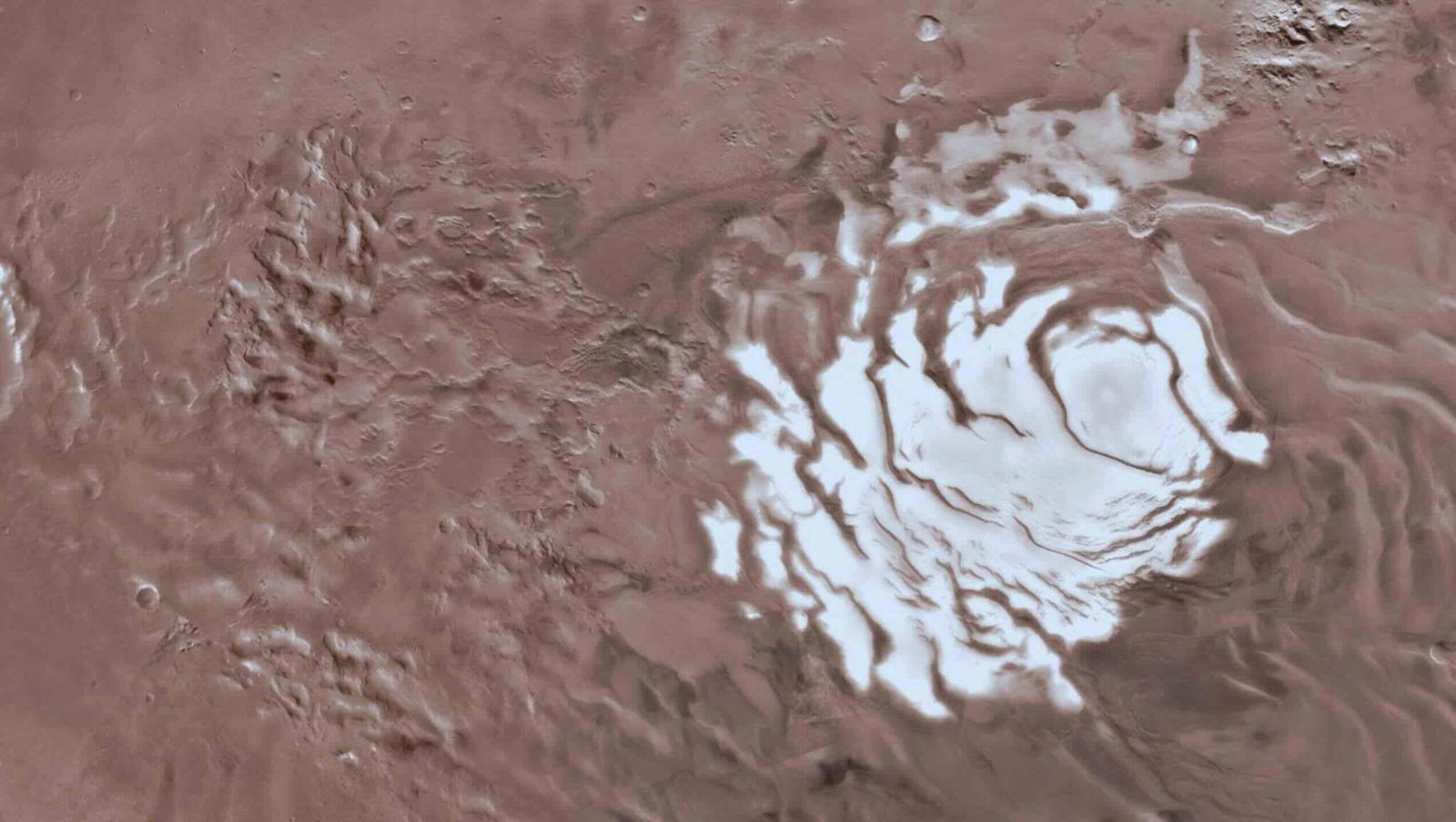Science
Related: About this forumScientists Have Made a Chilling Discovery That Could Soon Reveal Whether Life Exists on Mars

(Credit: USGS Astrogeology Science Center, Arizona State University, INAF)
Micah Hanks·October 19, 2024
Scientists have discovered that exposed ice on Mars could create conditions suitable for photosynthesis, suggesting the possibility that microbial life could thrive there despite the planet’s harsh environment and intense ultraviolet radiation.
The new findings reveal the potential for the existence of life on the Red Planet near its sub-latitudes, revealing that photosynthetic organisms may be uniquely suited for survival in certain icy exposed regions on the planet.
Unlike Earth, Mars is exposed to significantly more harmful ultraviolet (UV) radiation since it has no ozone layer, meaning that processes like photosynthesis, which plants and certain other organisms rely on to produce food with the help of sunlight, would be impossible on its surface under normal Martian conditions.
However, that may not be the case just a short distance below some of the Red Planet’s exposed icy surfaces. As little as a few centimeters of Martian surface ice could potentially offer enough shielding against radiation that photosynthetic organisms might be able to thrive.

In the image above captured by NASA’s Mars Reconnaissance Orbiter, white areas on the edges of the ridge could indicate the presence of ice on Mars where photosynthetic life forms might be able to thrive (Credit: NASA/JPL-Caltech/University of Arizona).
More:
https://thedebrief.org/scientists-have-made-a-chilling-discovery-that-could-soon-reveal-whether-life-exists-on-mars/
Think. Again.
(21,266 posts)But I'm not sure why we insist on limiting our recognition of "life" to only lifeforms that we already know and understand.
Yes, the solar radiation on Mars would prohibit the types of life forms that developed on Earth without that solar radiation, but what's to stop a life form that feeds off of that radiation from developing on Mars?
exboyfil
(18,108 posts)Life as We Don't Know It
Also a book called Weird Life
Extremophiles are also extensively studied (some archaea actually use UV in an equivalent process to photosynthesis).
There are scientists looking in a wide variety of different ways. Discovering an alternative biochemistry ..would be one of the most important discoveries in human history. Right now radiation resistance requires highly evolved processes (multiple redundant ways to avoid error propagation in DNA from damage from radiation).
Think. Again.
(21,266 posts)exboyfil
(18,108 posts)eppur_se_muova
(38,184 posts)The fundamental problem with high-energy radiation is that it is destructive to chemical bonds -- the higher the energy, the more generally destructive it is. Short UV is capable of breaking most weaker chemical bonds, and with only the strongest bonds to choose from, it is difficult to imagine substances or materials capable of storing genetic information or bio-available energy that would not break down rapidly on exposure. X-rays are even more energetic, and gamma rays more energetic still, thus able to break almost any kind of chemical bond. X-ray or gamma ray "illumination" at anything like the intensity of visible light on the surface of Mars (quite a bit dimmer than on Earth) would destroy any chemical-based life. Short UV is sort of on the threshold -- conceivable that life could evolve to handle it, but unlikely that the first forms of life could. So the further evolution of primitive life under such illumination would be nipped in the bud.
Advanced, Earth-like life forms, starting from a less resistant genetic population and subjected over time to increasing radiation levels, have proven capable of adapting to surprisingly energetic radiation. But they had a "leg up", so to speak, in that they evolved to a fairly advanced stage with metabolic and genetic flexibility/adaptability before being stressed with that radiation on top of everything else. Prebiotic evolution without an ozone shield would be more difficult -- Earth's oceans are probably what made it possible here, and if Mars indeed had oceans at one time, it may have happened there as well. It's a question of whether the loss of deep water on Mars was too fast for primitive organisms to adapt to more energetic radiation. At this point, we don't know, but if it was, it's certainly less likely that life would re-evolve from prebiotic conditions afterwards. Given infinite time, of course, even the unlikely becomes inevitable, but Mars hasn't had anything like infinite time -- has it had time enough ? We just don't know (yet).